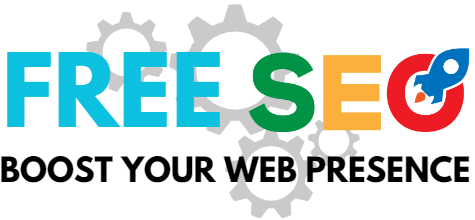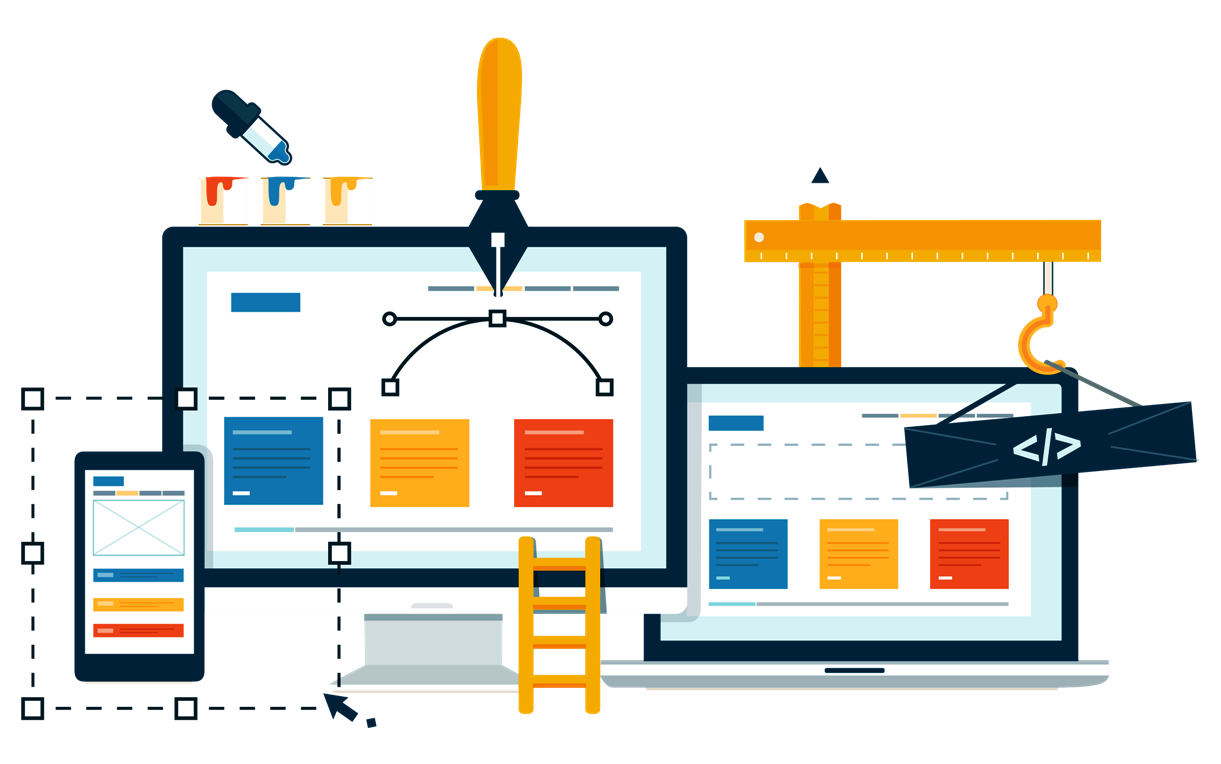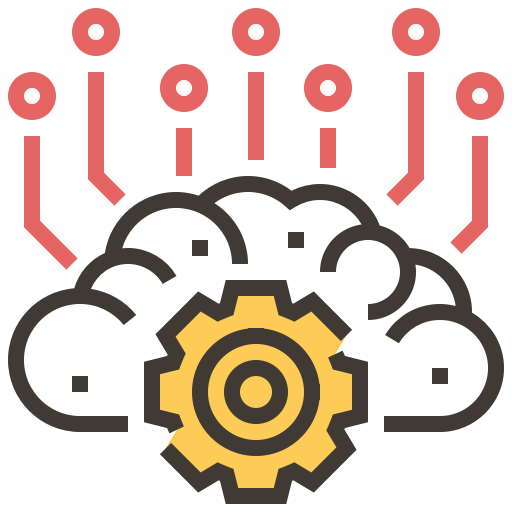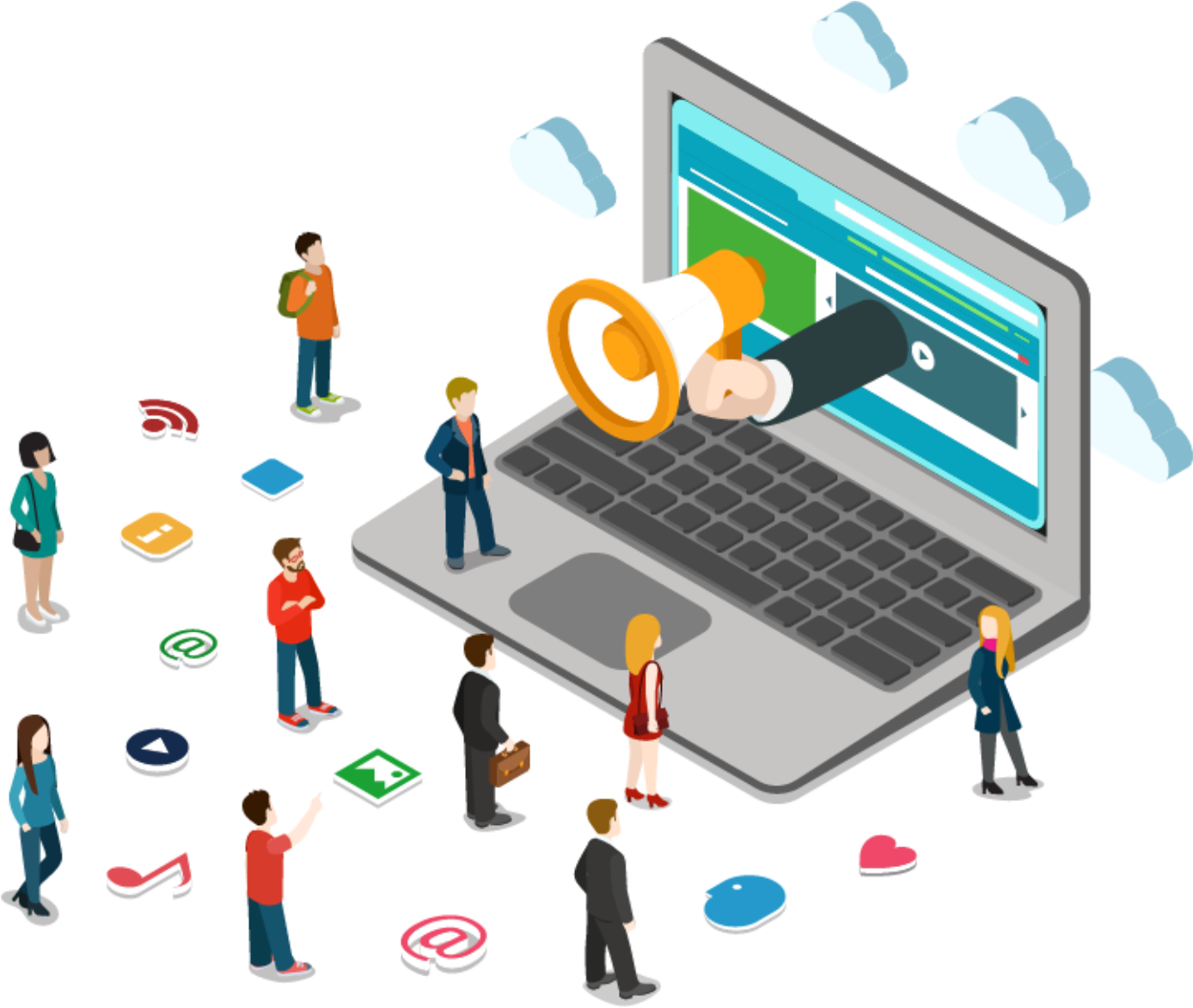The digital landscape is in constant flux, and one of the most significant drivers of this change is artificial intelligence (AI). AI’s integration into web design and development is not just a trend; it represents a fundamental shift in how websites are created, maintained, and optimized. This article delves into how AI transforms web design and development, highlighting its impact on efficiency, user experience, and the overall design process.
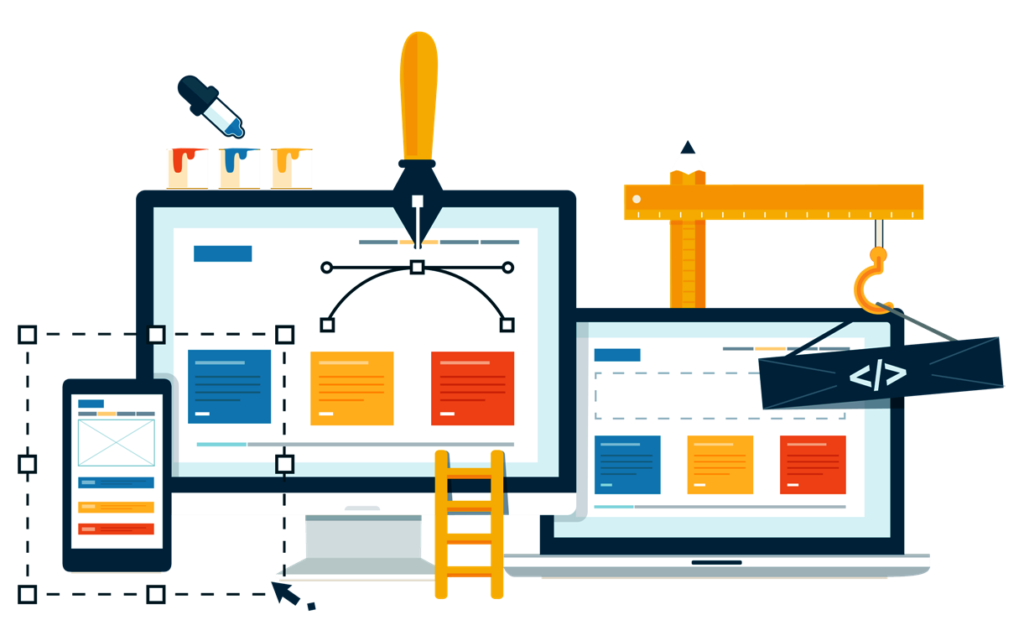
The Evolution of Web Design and Development
To appreciate the transformative impact of AI on web design and development, it’s essential to understand how the field has evolved. In the early days, websites were static, manually coded pages with limited functionality. Introducing dynamic websites and content management systems (CMS) like WordPress marked a significant leap, allowing non-technical users to create and manage web content.
As the internet matured, responsive design became crucial, ensuring websites functioned seamlessly across various devices. Despite these advancements, web design and development remained labor-intensive, requiring significant human input for coding, Testing, and optimization. Enter AI, poised to revolutionize these processes.
AI in Web Design: An Overview
AI in web design refers to using machine learning algorithms and other AI technologies to automate and enhance various aspects of the design process. This includes everything from generating design suggestions based on user preferences to optimizing site performance through continuous learning and adaptation.
Benefits of AI in Web Design
- Increased Efficiency: AI can automate repetitive tasks, such as coding and Testing, freeing designers and developers to focus on more creative aspects of their work.
- Personalization: AI can analyze user data to create personalized experiences, tailoring content and design elements to individual user preferences.
- Improved User Experience: AI-driven analytics can provide insights into user behavior, allowing for continuous site design and functionality improvements.
- Cost Reduction: Automating parts of the design and development process can reduce costs associated with manual labor and human error.
AI Tools Transforming Web Design and Development
Several AI-powered tools are making waves in the web design and development industry. Here are some notable examples:
- The Grid: An AI-driven platform that designs websites based on user content and preferences, offering a highly personalized design experience.
- Wix ADI (Artificial Design Intelligence): This tool uses AI to create stunning websites by asking users questions and generating a site tailored to their needs.
- Adobe Sensei: Adobe’s AI and machine learning framework enhances creative workflows by automating mundane tasks and providing intelligent design suggestions.
AI in Front-End Development
AI makes significant inroads into front-end development through automated coding and debugging tools. AI-powered code generators can write code based on user specifications, significantly speeding up development. Tools like DeepCode analyze code to suggest improvements and identify potential bugs, enhancing code quality and reliability.
AI and UX/UI Design
User experience (UX) and user interface (UI) design are critical components of web design, and AI plays a pivotal role in enhancing both. AI can analyze vast amounts of user data to identify patterns and preferences, enabling designers to create interfaces that are not only aesthetically pleasing but also highly functional and intuitive.
AI-Driven User Testing
Traditional user testing methods can be time-consuming and expensive. AI-driven user Testing tools like UserTesting and Hotjar use machine learning to gather and analyze user feedback efficiently. These tools can provide real-time insights into how users interact with a website, highlighting areas for improvement and ensuring a seamless user experience.
AI and Content Creation
Content is king in the digital world, and AI transforms how content is created and managed. AI-powered content generators, like OpenAI’s GPT-3, can produce high-quality written content based on user input. These tools can generate blog posts, product descriptions, and even entire web pages, ensuring content is engaging and relevant.
AI for SEO and Analytics
Search engine optimization (SEO) is another area where AI is making a substantial impact. AI-powered SEO tools, such as Clearscope and MarketMuse, analyze top-performing content to provide insights into keyword usage and content structure. These tools can help websites rank higher in search engine results, driving more organic traffic.
AI analytics tools, like Google Analytics’ AI features, can process vast amounts of data to uncover trends and insights that would be impossible to detect manually. These insights can inform design and content strategies, leading to improved website performance and user engagement.
Ethical Considerations in AI Web Design
While AI offers numerous benefits, it’s essential to consider the ethical implications of its use in web design and development. Issues such as data privacy, algorithmic bias, and the potential loss of jobs due to automation need to be addressed.
Data Privacy
AI systems often rely on vast amounts of user data to function effectively. Ensuring this data is collected and used ethically, with user consent and robust security measures, is paramount.
Algorithmic Bias
AI systems can inadvertently perpetuate biases present in their training data. It’s crucial to develop and implement AI systems that are fair and unbiased, promoting inclusivity and diversity.
The Future of AI in Web Design and Development
The integration of AI in web design and development is still in its early stages, but the potential for growth is immense. As AI technologies continue to evolve, we can expect even more sophisticated tools and applications that will further streamline and enhance the design and development process.
Predictive Design
Future AI tools may be capable of predictive design, where AI anticipates user needs and preferences to create highly personalized and intuitive web experiences. This could revolutionize how websites are designed, making them more dynamic and user-centric.
AI-Enhanced Collaboration
AI has the potential to enhance collaboration among design and development teams by providing real-time feedback and suggestions. This could lead to more efficient workflows and better end products.
Conclusion
AI is undeniably transforming web design and development, offering unprecedented efficiency, personalization, and user engagement. As AI technologies continue to advance, their impact on the digital landscape will only grow, paving the way for a new era of web design and development that is smarter, faster, and more user-centric than ever.
FAQs
- How does AI improve web design efficiency? AI automates repetitive tasks such as coding and Testing, allowing designers and developers to focus on more creative aspects of their work, ultimately speeding up the design process.
- Can AI create entire websites on its own? AI tools like The Grid and Wix ADI can generate entire websites based on user input, although human oversight is often needed to refine the final product.
- What are the ethical considerations for using AI in web design? Ethical considerations include ensuring data privacy, avoiding algorithmic bias, and addressing the potential impact on jobs due to automation.
- How does AI enhance user experience (UX) design? AI analyzes user data to identify patterns and preferences, enabling designers to create aesthetically pleasing and highly functional interfaces.
- What is the future of AI in web design and development? The future includes predictive design capabilities and AI-enhanced collaboration tools, leading to more personalized and efficient web design processes.
